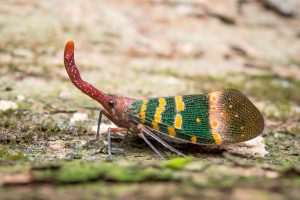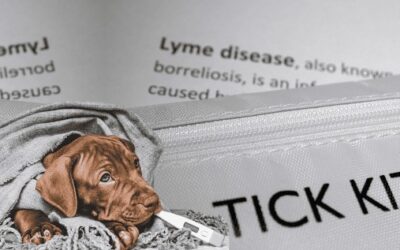Are Cicadas Poisonous to Dogs?

Dogs are curious creatures and often explore their surroundings with their mouths. This can lead to some interesting and sometimes concerning discoveries, such as the discovery of cicadas. Cicadas are insects that emerge from the ground every 13 or 17 years, depending on the species, and their sudden appearance can be quite fascinating for both humans and their canine companions. However, pet owners and experts alike debate whether cicadas are safe for dogs to eat. In this article, we’ll explore the truth about dogs and cicadas and provide you with the information you need to keep your furry friend safe.
Can Dogs Eat Cicadas?
The short answer is that dogs can technically eat cicadas, but it’s generally not recommended. Cicadas are not a natural part of a dog’s diet and can pose potential risks to your canine companion. Cicadas are known to contain high levels of protein, which can be beneficial for dogs in moderation. However, they also contain a variety of compounds and chemicals that can be harmful to dogs if consumed in large quantities.
Potential Risks of Dogs Eating Cicadas
- Digestive Issues: Cicadas can be difficult for dogs to digest, and they may cause gastrointestinal problems such as vomiting, diarrhea, and abdominal pain.
- Allergic Reactions: Some dogs may have an allergic reaction to the proteins or other compounds found in cicadas, which can lead to skin irritation, hives, or even more severe reactions.
- Choking Hazard: The hard exoskeleton of cicadas can pose a choking hazard, especially for smaller dogs.
- Toxicity: Cicadas can contain compounds that are toxic to dogs, such as cantharidin, which can cause kidney and liver damage if consumed in large quantities.
Symptoms of Cicada Poisoning in Dogs
If you think your dog may have eaten a cicada, it’s important to be on the lookout for the following symptoms:
- Vomiting
- Diarrhea
- Abdominal pain
- Lethargy
- Lack of appetite
- Skin irritation or hives
If you notice any of these symptoms, it’s important to contact your veterinarian immediately.
What to Do if Your Dog Eats a Cicada
If you witness your dog eating a cicada, acting quickly is important. Here are the steps you should take:
- If possible, remove the cicada from your dog’s mouth, taking care not to get bitten or stung yourself.
- Contact your veterinarian immediately and provide them with information about the incident, including how many cicadas your dog may have consumed.
- Monitor your dog closely for any signs of distress or illness, and be prepared to take them to the vet if necessary.
Preventing Dogs from Eating Cicadas
The best way to prevent your dog from eating cicadas is to keep them away from areas where the insects are present. This may involve:
- Keeping your dog on a leash when outdoors during cicada emergence periods
- Removing any fallen or dead cicadas from your yard or garden
- Providing your dog with plenty of exercise and mental stimulation to reduce their interest in exploring and eating unfamiliar objects
Other Insects that Can Be Harmful to Dogs
While cicadas may be the insect du jour, there are a number of other insects that can be harmful to dogs, including:
- Ants
- Bees and wasps
- Spiders
- Ticks
- Fleas
It’s important to be aware of the potential risks these insects pose and take appropriate precautions to protect your dog.
Common Misconceptions about Dogs and Cicadas
Despite the potential risks, there are a number of common misconceptions about dogs and cicadas that are worth addressing:
“Cicadas are a natural food source for dogs.”
While some wild canines may consume insects as part of their natural diet, domestic dogs are not adapted to eating cicadas regularly.
“Cicadas are harmless to dogs.”
As we’ve discussed, cicadas can pose a variety of risks to dogs, including digestive issues, allergic reactions, and toxicity.
“My dog has eaten cicadas before and was fine.”
Although your dog has consumed cicadas without incident in the past, it doesn’t mean it will always be safe. Each dog’s reaction can vary, and it’s important to take the potential risks seriously.
Expert Opinions on Dogs and Cicadas
Veterinary experts and animal behaviorists have weighed in on the topic of dogs and cicadas, and their advice is largely consistent:
“In most cases, your dog will be fine after eating a few cicadas. However, dogs that gorge on the large, crunchy insects will find the exoskeleton difficult to digest and can suffer serious consequences.” – Dr. Jerry Klein, chief veterinary officer for the American Kennel Club (AKC) on the group’s website.
How Could Pet Insurance Help If Something Happened to Your Dog?
If your dog does happen to eat a cicada and experiences any adverse effects, pet insurance could help cover the cost of veterinary care.
With pet insurance, you can have peace of mind knowing that you’ll be able to provide your furry friend the care they need without worrying about the financial burden. This can be especially helpful if your dog requires extensive treatment or hospitalization due to cicada poisoning.
Pet insurance can help cover the costs of veterinary consultations, diagnostic tests, medications, and even specialized treatments if required.
Reimbursement
This method is the most common for pet insurance companies. You pay out of pocket for the veterinarian bill, and then the insurance company reimburses you for what’s covered under the insurance plan. The steps look like this.
- You pay the vet bill after your dog’s visit.
- You fill out the pet insurance claim form.
- Submit the claim form and other required documentation to the insurer.
- After the claim is approved, you will be reimbursed for eligible expenses.
What Does Odie Pet Insurance Cover?
Pet insurance covers various veterinary expenses, providing financial protection and peace of mind for pet owners. Here are the details of the coverage options offered by Odie Pet Insurance:
Illness & Injury Plan
The Illness & Injury Plan is an all-inclusive insurance plan designed to cover a wide range of medical needs for your pet. This plan includes comprehensive coverage for various illnesses, injuries, and veterinary services. Some of the covered items include:
- Veterinary exams and consultations
- Diagnostics (e.g., X-rays, lab tests)
- Prescribed medications
- Surgeries and hospitalization
- Rehabilitation, acupuncture, or chiropractic treatments
- Medically necessary supplies
- Euthanasia and cremation
The Wellness Plan
The Wellness Plan is a monthly membership that focuses on preventive care and covers routine veterinary services.
- Provides reimbursements for routine care items such as wellness visits (exams and vaccines), testing and parasite prevention, dental cleanings and at-home dental care, vitamins, supplements, and more.
- Through Odie’s partnership with Petivity, a leader in smart pet products and proactive care, Wellness Plan members can also receive reimbursements for Petivity devices and health kits, as well as eligible Purina food and supplements.
- Total reimbursement up to $700 per year.





